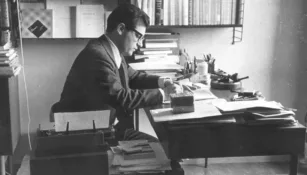INTERVISTE/ 1 / a cura di Maria Vittoria Comacchi /
Histories and models of ideas and visions. Interview with Emanuela Scribano
In this interview, Emanuela Scribano discusses her book Angeli e beati. Modelli di conoscenza da Tommaso a Spinoza (2006), which was recently translated into French (Anges et bienheureux. La connaissance de l’infini de Thomas d’Aquin à Spinoza, 2021), addressing the difference between the concepts of knowledge, vision, and ecstasy. By exploring the methodological notion of model, she advocates the role of history as the framework in which ideas should be read and understood. Emanuela Scribano is one of the leading scholars in the field of history of philosophy, receiving national and international acknowledgments. She is professor emeritus of History of Philosophy at the Università Ca’ Foscari di Venezia, fellow of the Accademia Nazionali dei Lincei and international honorary member of the American Academy of Arts and Sciences in the section Philosophy and Religious Studies. In her work she has combined historical and hermeneutical methodologies in the study of primary sources and the philosophical examination of their intellectual contexts. Among her main contributions to the history of early modern philosophy have been her studies on metaphysics and epistemology from Descartes to Spinoza, the continuities and disruptions between scholastic and early modern philosophers, the 16th-century heretical thought, and the relationship between science and metaphysics in the early modern thought.

